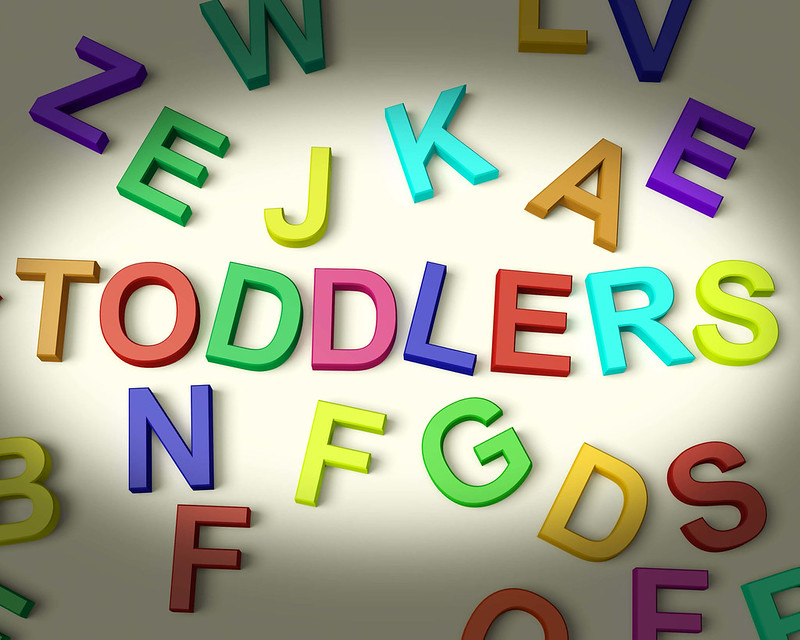So much talk about toddlers on Character Ink/Raising Kids With Character, you would think that I have a fifteen month old grandbaby or something! I wanted to re-run some old posts about toddlers to follow up the two Wondering Wednesday podcasts (Part 1) (Part 2) that I have done over the past couple of weeks about these amazing kids!
Question: How can I start some of the character training concepts and habits that you describe with a toddler?
Answer: If you are just starting out with your family and have only a toddler, you have the perfect opportunity to start out right in the character training of your children! I will offer some general tips below, but even more importantly than the “daily ins and outs” of the ideas I recommend, I suggest that you read Parenting Paradigms at this blog. Even if you take to heart some of the ideas for your little one given in this Q and A, in the end, you will be more successful at character training if you have a firm handle on what you believe about parenting and children.
Toddler Character Training Tips:
1. Start adapting the toddler to your schedule and your family’s lifestyle as soon as you can (six to nine months) rather than making your family’s life revolve around the little one’s “wants.” You want to enjoy your toddler within the dynamics that your family already has (with the addition of the joy and wonder that a toddler brings into the family, of course)—as opposed to making everything change to meet unnecessary and often damaging demands that a toddler who is given his own way all the time can often make.
2. Remember that you are setting the stage right now for your child’s “tastes” (follow us on Positive Parenting 365 or schedule our seminar for more details about this important concept).
a. You can set his tastes for defiance (allowing screaming, throwing, thrashing, and “no” from him) or submission.
b. You can set his tastes for selfishness and meanness (allowing hitting or other forms of striking, giving in to him when he wants something that someone else has, always making his surroundings whatever he wants (i.e. no bedtime, no sitting in high chair, etc.) due to “fits” or for kindness, gentleness, sweetness, and tenderness.
c. You can set his tastes for hyper-stimulation and activity (too much running; no scheduled down times; television and videos all the time) or for simple things (books, healthy toys, rest, etc.).
d. You can set his tastes to lack focus and not enjoy learning (again, too much video, not starting out with books and simple music; an avalanche of cartoons and children’s programming (some of which are developed in two second bits to keep up with short attention spans, thus, causing kids’ attention spans not to lengthen as they should) or a love for learning (via books, strong family learning and discussion times, etc.).
3. Decide ahead of time what your “behavior absolutes” are.
a. These are the behaviors or character that you absolutely will not allow in your home. What you allow now will become the “acceptable behaviors” to your child. These seemingly innocent actions include “fibbing,” hitting, running the other way when called, etc.
b. For us, these “behavior absolutes” included talking back (no toddler saying “no” without being punished); lying or deceit; temper tantrums; and striking (hitting, pulling hair, throwing things at someone, etc.). Obviously, we wanted our kids to learn to obey and submit to us and to learn the many character qualities that are crucial to living a Christian life, but these four things were things we never wavered on—and things that we made huge deals out of when they were not adhered to by the toddler/preschooler.
4. Start showing your little one the joy of doing what is right. Contentment in your own life, the blessing of work, the joy of loving God and His people—and all of the character that you want your little one to adopt in his life—love, longsuffering, diligence, responsibility, and more will more likely be realized in our kids’ lives when we ourselves embrace and model them.
5. Try to establish routines that will aid in his character development—bedtimes, rising times, little “chores” (putting his books in his book basket after you read), nap times, meal times, story time, etc.
For more tips on toddlers and babies, click on the links provided below:
Who makes the decisions for the children—starts here and goes for a few days: Who Makes The Decisions
Say what you mean—starts here and goes for two days: Don’t Leave Your Little One at McDonald’s—Say What You Mean, Part ii of ii
A post on Storytime.








Trackbacks/Pingbacks